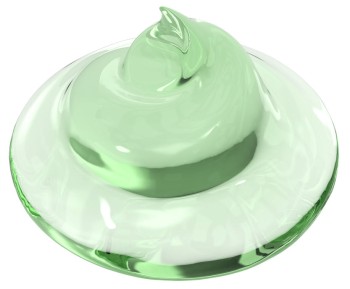
Pot is good for parents new study finds
Cannabis and parenthood: two concepts that have long been considered incompatible. For decades, the prevailing wisdom suggested that responsible parenting and marijuana use were mutually exclusive. This belief, deeply ingrained in our societal fabric, has led to countless families being torn apart, with children removed from their homes due to their parents' cannabis consumption. The war on drugs, at its peak, painted a grim picture of neglectful, intoxicated parents unable to care for their children properly.
But what if we've been wrong all along? What if, like peanut butter and jelly, cannabis and parenthood actually complement each other in ways we never imagined? A groundbreaking new study, funded by the Centers for Disease Control and Prevention, suggests exactly that. The research, published in the journal Parenting: Science and Practice, offers compelling evidence that cannabis use might actually enhance positive parenting behaviors.
This revelation challenges long-held assumptions and forces us to reconsider our approach to cannabis in the context of family life. It seems that the leaf we've long demonized might actually be a tool for nurturing healthier parent-child relationships. But before we all rush to light up in the name of better parenting, it's crucial to understand the nuances of these findings.
In today's article, we're going to take a deep dive into this fascinating research. We'll explore what it truly means to be a "pot parent" in light of this new data. We'll examine the potential benefits of cannabis use in parenting, but we'll also look at where the line is drawn - when does cannabis consumption stop being helpful and start becoming counterproductive?
Most importantly, we'll discuss how these findings might be applied practically to raise healthy, well-adjusted children. Can cannabis, used responsibly, actually make us better parents? It's time to set aside our preconceptions and let the data speak for itself. Join us as we explore this paradigm-shifting research and its implications for families everywhere.
What the Study Found
JG
Now write 500-words on, "Let's review the study"
In this segment focus on:
-
The most important points the study found, both positive and negative.
-
Provide actual quotes from the study
-
Provide statistics and discuss methodology of the study
-
Talk about the sample group size
-
Talk about how this should alter our understanding of pot and parenthood
Let's review the study
This groundbreaking research, funded by the Centers for Disease Control and Prevention, offers a fresh perspective on the relationship between cannabis use and parenting behaviors. Let's dive into the key findings, methodology, and implications of this study.
The researchers analyzed survey responses from 77 parents recruited at Sacramento area cannabis retailers. This sample group, while relatively small, provided rich data through a comprehensive survey process. Participants completed a baseline survey, followed by five brief surveys per day for 14 days, and a final survey on day 15. This ecological momentary assessment (EMA) approach allowed for real-time data collection, capturing the nuances of daily life more accurately than retrospective surveys.
One of the most striking findings was the positive correlation between cannabis use and affirmative parenting behaviors. The study reports, "Parents had greater odds of using positive parenting during the same and subsequent time periods when using cannabis." This challenges the long-held assumption that cannabis use necessarily leads to neglectful parenting.
Importantly, the research also found that parents were generally responsible in their consumption habits. The study notes, "Parents reported that children were not present in 92.3% of the episodes when they reported using cannabis." This statistic suggests that most cannabis-using parents are conscientious about separating their use from direct childcare responsibilities.
The social context of cannabis use emerged as a significant factor influencing parenting behaviors. The researchers found that "Using cannabis with an individual for whom the parent may only have weak social connections to (compared to using alone) is the only social context in which a parent is more likely to use aggressive discipline." This highlights the importance of a supportive social environment for cannabis-using parents.
On the positive side, the study revealed that parents who used cannabis with a spouse, partner, or friends "had higher odds of reporting positive parenting in the next time period." This suggests that cannabis use in a supportive social context might actually enhance positive parenting behaviors.
The method of consumption also played a role in parenting outcomes. Parents who reported vaping marijuana "had lower odds...of using aggressive discipline in the time frame after use." This finding could have implications for harm reduction strategies in cannabis-using parents.
It's crucial to note the study's limitations. The sample size of 77 parents is relatively small and not representative of all cannabis-using parents. The authors caution that their findings should be interpreted carefully, stating, "Much more needs to be understood around the social mechanisms that result in these findings to better understand how the social context of cannabis use may promote positive parenting."
Despite these limitations, this study challenges our understanding of cannabis and parenthood in significant ways. It suggests that responsible cannabis use, particularly in supportive social contexts, may actually promote positive parenting behaviors. This flies in the face of decades of anti-drug messaging that portrayed any cannabis use as inherently detrimental to family life.
However, it's equally important to note that the study doesn't give carte blanche to unrestricted cannabis use by parents. The finding that parents overwhelmingly use cannabis when children are not present underscores the importance of responsible consumption habits.
This research should prompt a reevaluation of policies and attitudes towards cannabis-using parents. It suggests that blanket prohibitions or punitive measures against parents who use cannabis may be misguided and potentially harmful to families. Instead, a more nuanced approach that recognizes the potential benefits of responsible use while still prioritizing child welfare may be more appropriate.
As a parent, I support this study!
As a father of a 3-year-old toddler and a 3-month-old baby, I can attest to the extreme stress that comes with parenthood. It's a relentless rollercoaster of joy, exhaustion, and constant vigilance. The demands are never-ending - from middle-of-the-night feedings to toddler tantrums, there's rarely a moment to catch your breath. You don't get time to sleep or even take a peaceful bathroom break, as you're always prioritizing your children's needs over your own.
While I can't speak for all parents worldwide, I can share my personal experience. When I'm done with work for the day and it's time to engage with my kids, I've found that a single hit or two of cannabis can work wonders. It's not about getting high or escaping reality; rather, it's about shifting my perspective and allowing me to immerse myself more freely in their world.
Instead of feeling overwhelmed by the prospect of building yet another block tower or reading "The Very Hungry Caterpillar" for the hundredth time, cannabis helps me get out of my own way. It allows me to approach these activities with renewed enthusiasm and creativity. I'm no longer avoiding my kids' play but actively participating in it. And let's remember, play is how children learn and develop. When a parent fully engages in this play, it becomes even more enriching for the child.
Don't get me wrong - parenting is still stressful, even with cannabis. But it definitely helps me relate to my children's problems more empathetically. It opens me up emotionally, making me more attuned to their needs. I find myself more patient, more willing to get down on their level and see the world through their eyes.
In fact, I'd go so far as to say that for some parents, cannabis should be mandatory - especially those who often find themselves too busy or distracted to truly engage with their kids. Of course, I'm being a bit tongue-in-cheek here, but there's a kernel of truth to it. If cannabis can help parents be more present, more patient, and more engaged, isn't that a net positive for the family unit?
Now, I'm not advocating for irresponsible use. As the study showed, most cannabis-using parents are conscientious about when and where they consume. It's about finding that sweet spot where you can enhance your parenting skills without compromising your ability to care for your children.
While there's undoubtedly more research to be done on this subject, this study is a crucial step in challenging our preconceived notions about cannabis and parenting. For too long, we've operated under the assumption that any cannabis use automatically makes someone a "bad" parent. But reality, as always, is far more nuanced.
My experience, backed up by this research, suggests that responsible cannabis use can actually enhance positive parenting behaviors. It can help us slow down, be more present, and connect with our children on a deeper level. In the high-stress world of modern parenting, isn't that something we should be exploring further rather than dismissing out of hand?
As we move forward, it's crucial that we continue to reevaluate our attitudes towards cannabis and parenthood. We need to let go of outdated stigmas and instead focus on what actually benefits families. If cannabis, used responsibly, can help create more engaged, patient, and emotionally available parents, then perhaps it's time we start seeing it as a potential parenting ally rather than an enemy.






